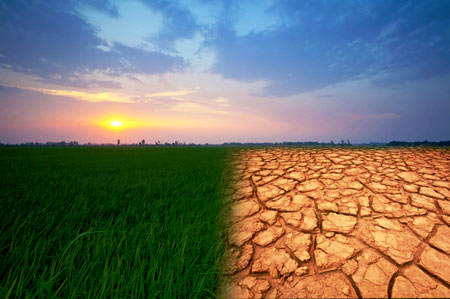Race to ratify the Paris climate deal starts at the UN
by Matt McGrath
Around 60 world leaders were expected at UN headquarters, including
French President Francois Hollande and Prime Minister Trudeau from
Canada to formally sign the Paris climate deal at the UN Friday, setting
in motion events that could see the treaty operational within a year.
 Despite
the absence of President Obama, the UN says the expected record turnout
for the signing shows overwhelming global support for tackling rising
temperatures. Despite
the absence of President Obama, the UN says the expected record turnout
for the signing shows overwhelming global support for tackling rising
temperatures.
But some environmentalists have dismissed the event as a
"distraction".
But their signatures alone will not be enough to make the Paris
agreement operational.
The legal requirements mean that each country will have to go through
a process of ratification. For some this will require nothing more than
the assent of the political leader as in the example of the United
States.
Others though, such as India and Japan, will have to take the
document to their parliaments; some may need new laws.
The European Union is expected to lag behind on this issue as it has
not yet agreed with the 28 member states on how emissions cuts will be
shared out. Each member state will also have to ratify the deal
individually.
Some countries, including the Marshall Islands, Palau, Fiji and
Switzerland, have already completed this step and will be able to
formally join the agreement on April 22.
To become operational, the treaty needs at least 55 countries
representing at least 55% of global emissions to complete all the steps.
While this is a tough threshold to reach an unusual coalition of
interests is making it possible. Firstly President Obama is keen to
ensure the deal is operational before his successor takes office next
January.
If the next President wants to take the US out of an established
treaty they will have to wait for four years - by which time they may no
longer be in charge.
Many of the least developed countries are pushing forward as well
because a clerical error in the drafting of the new agreement means it
becomes operational as soon at it hits the 55/55 mark, and not in 2020
as many people had supposed.
Poorer countries fear that if the threshold is reached they could be
left out in the cold if they haven't ratified, meaning they would not be
able to influence the rules and organisation of the new deal.
"There was a little buzz a few weeks back with someone suggesting
that some of the smaller counties should refrain from signing, in order
to get a better deal," explained Reid Detchon from the United Nations
Foundation.
"The fact that there is this large number of developing [countries]
that are coming to the table here says that argument hasn't taken root
and they really saw how deeply their own national self interest was
bound up in success here."
Scientists and analysts are also keen on a speedy implementation of
the agreement for different reasons. According to a new study by
researchers at Chatham House, leaving any increase in the level of
carbon cutting ambition until 2025 as detailed in the Paris deal would
make it nigh on impossible to keep temperatures below 2 degrees C, never
mind 1.5.
"For the Paris agreement to have any credibility we can't afford to
wait ten years in order to increase ambition," said Shane Tomlinson, a
senior research fellow at Chatham House.
"Estimates suggest that the gap between where emissions will be and
where they need to be, will be around 11 gigatonnes of carbon dioxide in
2025. That's more than the annual emissions of China," he added.
Reid Detchon agreed on the need for urgency and increased ambition.
But he was worried that global leaders didn't quite understand that
getting agreement in Paris was, in some ways, the easy bit.
"My biggest concern really is that we are only on the first step of a
ladder of increased ambition. It is going to become clear to the world
over the next 3 -5 years how much more we need to do to stabilise the
climate."
Some environmentalists and indigenous leaders believe the whole
process is not worth the paper it is written on. According to the
International Alliance of Frontline Communities, the Paris Agreement is
a "dangerous distraction" from the real issues.
"I started attending the UN climate meetings in 1999. Over the last
17 years I've witnessed corporate, Wall Street and other financial
influence gut any real solutions coming out of the negotiations," said
Tom Goldtooth, of the Indigenous Environmental Network, in a statement.
"As a result, the Paris Agreement goal of stopping global temperature
rise by 1.5 degrees C is not real because the pledges each country is
making will allow emission levels that will increase global temperature
3 - 4 degrees. This will be catastrophic to the ecosystem of the world."
- BBC
|

